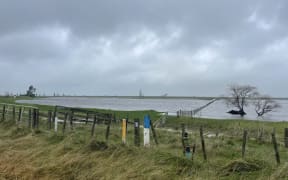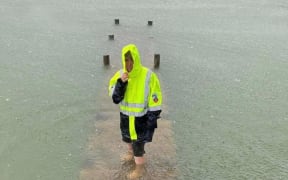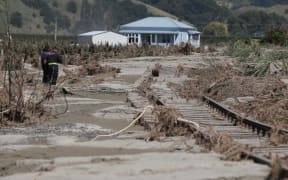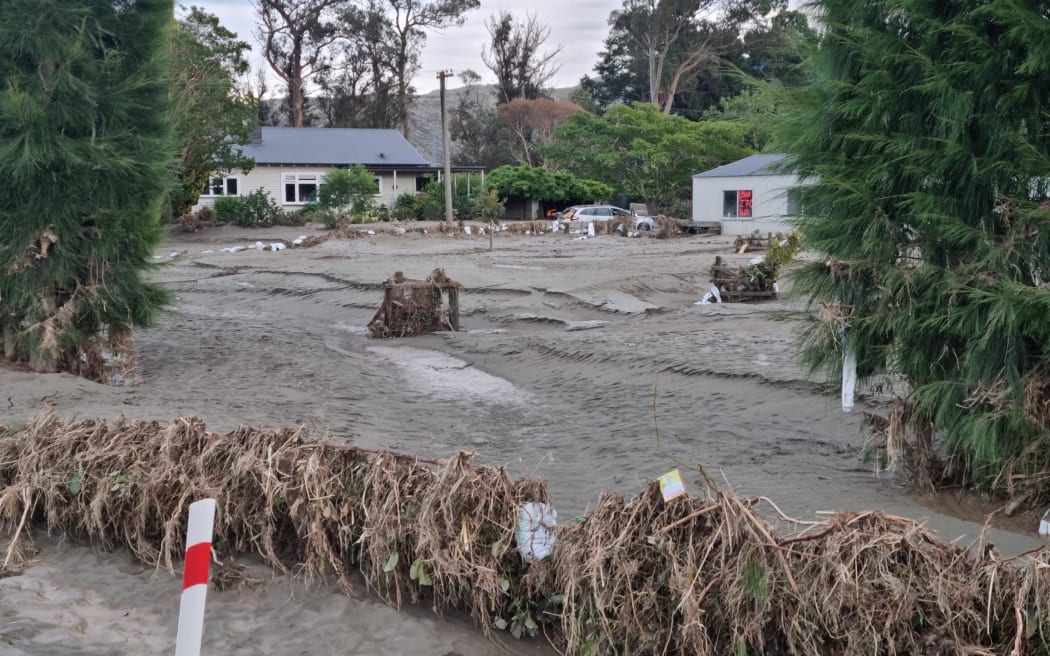
Mud and silt left behind at an Esk Valley property in Hawke's Bay after Cyclone Gabrielle passed through. Photo: RNZ / Sally Murphy
East Coast teachers say behavioural problems are up and attendance is down, with some families keeping their kids home when the weather gets bad.
Puketapu School principal Chris Fox said stressed families equalled stressed kids, and said many of his primary-aged students remembered how it felt to flee their homes as the water rose.
"One of the kids was up a tree near the school entrance. I said, 'Hey, hop down,' and he said, 'Oh no, I'm just practising for next time'."
The cyclone came on top of a disrupted few years, with first Covid-19 and then the teacher strikes, and now, ongoing bad weather.
Fox said during last week's bout of heavy rain, 130 students out of a roll of 270 were absent, with parents preferring to keep them close, or patchy flooding making travel difficult.
The demand for counselling had also shot up from six to 22 after the cyclone.
Fox said he had asked the Ministry of Education to increase their welfare support.
He was pleased to see Mana Ake, the government's mental health support programme, set to be expanded to Hawke's Bay and Tai Rāwhiti.
But that would not be a quick solution, he said, and was worried it would be too late.
"Now seems to be the time when children are just starting to open up about their experiences, and to talk about it."
In nearby Napier, Maraenui Bilingual School principal Chris Worsley said lately, they tried to reward students for things like supporting their friends and showing resilience - rather than just academic success.
"It's no use putting the stress on [students] to complete this milestone in reading or maths or whatever it might be, and then you have a blow-out at the other end because we haven't been looking after their mental health and their wellbeing, and fostering that kind of resilience."
Tt the primary school level, they could afford to prioritise student wellbeing over meeting learning goals, without the pressure of exams, Worsley said.
The school's roll was all Māori, and with marae like Tangoio devastated by the cyclone, students were left without their community's safe space, making their experience at school even more important, he said.
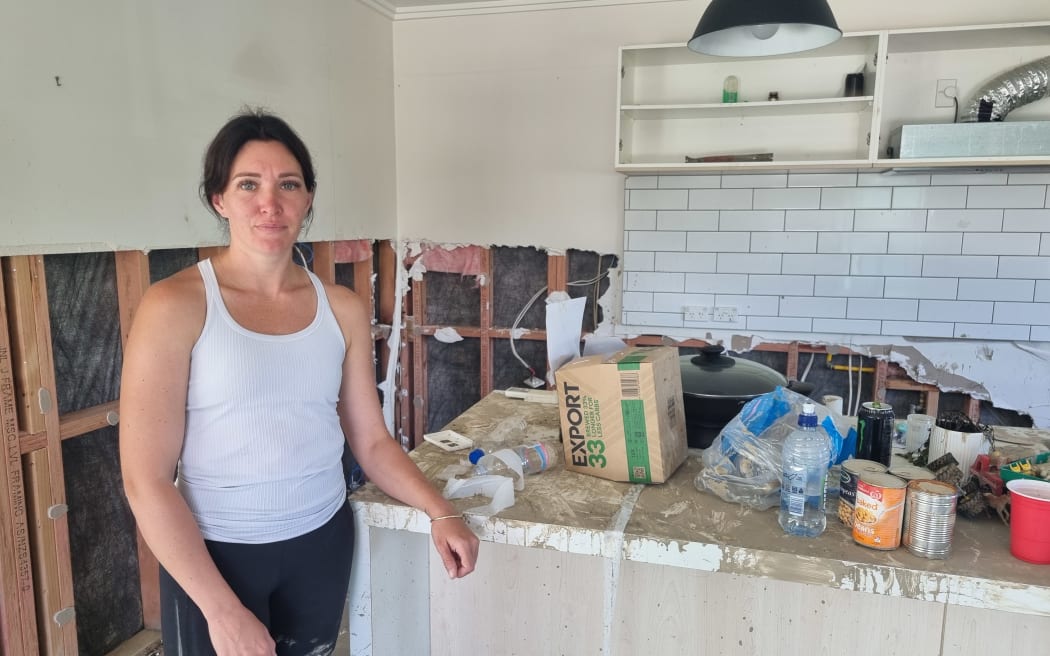
Danelle Kendrick standing in her Eskdale home. Photo: RNZ / Lauren Crimp
Eskdale resident Danelle Kendrick's home was completely inundated during Cyclone Gabrielle.
After fleeing on foot that night, she said her three boys, aged between 2 and 7, were coping differently - from spontaneous vomiting, to trouble sleeping, to completely clamming up.
Her youngest started to panic whenever he heard rain on the roof or the car window, Kendrick said.
Eskdale School was damaged, but recently reopened after a term of classes held in the rugby club rooms, and it was a return to familiarity for the kids.
"After a whole heap of chaos, having those things that were familiar - because there's not much that we had left that was - it was good for them to start grounding again."
Kendrick said the support of the teachers, many of whom had been affected by the storm themselves, had been incredible, and there were counsellors on-site.
During their stint at the rugby club, the school had prioritised group activities and fun lessons rather than the usual curriculum.
In general, kids were pretty resilient, Kendrick said.
"I know that they don't bottle things up as much as we do as adults. I'm pretty proud of my boys and how they've handled a whole heap of stuff thrown their way."
The counselling service run by the Napier Family Centre had seen a 40 percent increase in youth counselling demand since the cyclone.
Chief executive Kerry Henderson said they had extended their services to local schools in response.
"While we've already started working with a small number of schools, we have plans in the pipeline to continue this in-school support in other impacted areas."
Henderson said she anticipated an increase in the complexity of mental health issues over the coming months and years, and more people needing to access mental health and social support, some for the first time in their lives.
Up the coast in Tai Rāwhiti, Kaitī School principal Billie-Jean Potaka-Ayton said it had been a difficult year.
"Covid is no longer the major challenge for us here in Te Tai Rāwhiti," she said.
"It is climate change."
During heavy rain, the school leaked and the toilet system was prone to backing up, as rainwater overwhelmed the sewers. For schools up the coast, getting to school was a daily challenge along the damaged road network.
In town, Kaitī School made the most of fine days by challenging another kura to a sports game. Attendance was down, but only a little. At its lowest on stormy days, it was around 70 percent.
"We are pleased that the primary teachers and the Ministry of Education have come to an agreement and settled their pay offer," Potaka-Ayton said.
"It was touch-and-go there during the negotiation period and it did cause uncertainty and anxiety for some families who need to be at work to provide for their families/"

